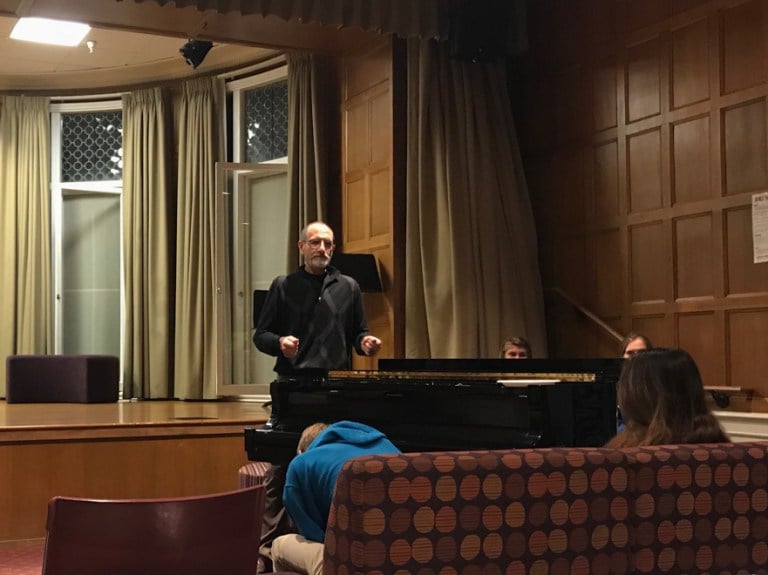On Wednesday, earth system science and biology professor Chris Field discussed his hopes for a solution to climate change in light of discouraging reports on the impact of the issue. The discussion was held as part of the seminar series Hard Earth: Tough Talks About Sustainability’s Dilemmas.
Field said he believes that progress in science and technology will help mitigate the issue of climate change.
“We do live in a frustrating time in terms of where national governments are, particularly ours, but we don’t live in a frustrating time in terms of the way that technology, the understanding and the deployment is unfolding,” he said.
Field believes one of the primary issues in identifying a solution to climate change is that people have incorrectly viewed addressing climate change as a series of tradeoffs.
“[People say] ‘You could either invest in building a vibrant economy, you could invest in mitigating climate change, spending a whole bunch to transition the energy system to something else, or you can invest in adaptation, building sea walls and elevating houses and stuff like that,’” Field said.
More recently, he explained, people have been searching for win-win solutions to climate change rather than viewing the issue as a series of tradeoffs.
“I think the single most important thing that’s changed in that fundamental framing is that we no longer talk about it in terms of a series of tradeoffs but in terms of finding places where two or even three of those priorities overlap,” Field said. “Where are the investments we can make that not only decrease energy use but also make people better prepared to deal with the impacts of [the] climate as it changes?”
Although he said finding these win-win solutions doesn’t solve the issue of climate change completely, Field believes they increase the likelihood of leaving behind a more sustainable world for future generations.
Field also discussed his experience working in the Intergovernmental Panel on Climate Change, “a partnership between the world’s governments and the scientific community,” designed to determine what we know and don’t know about climate change.
“The IPCC has been an incredible chance to understand the way climate politics worked, but it also left me with a profound understanding that there are dramatically different roles for different actors in developing climate solutions,” he said. These actors come from “NGO groups, student groups, from individual companies and from a huge range of participants that are called non-state actors.”
Field described the coalition of these non-state actors in California’s Global Climate Action Summit in September as “one of the most inspirational things I’ve seen in a long time” because “there was such a sense of possibility and of opening new doors, rather than of seeing doors close.”
He added that, despite the current impacts of climate change, “We are not yet committed to a world of unmanageable change.”
When asked what students can do to mitigate the problem, Field suggested they “think about where the levers of influence are,” whether that’s through political involvement, investments, communication or artistic expression.
“When you think about what you can do, you shouldn’t say that this is purely a technology problem or it’s purely a finance problem,” he said. “A real problem is thinking about the issue too narrowly.”
Mariam Elmansouri ‘22, who attended the talk, said she was encouraged by the fact that one of the world’s leading scientists on climate change is optimistic about the issue.
“It has definitely encouraged me to explore the issue more and stay informed, and it’s helped me recognize that it’s an evolving topic,” she said.
Laura Anderson ‘20, another event attendee, said she has always been an optimist about climate change but agreed that hearing from an expert on the topic was “refreshing.”
“Because it’s such a global problem, it feels like we as individuals don’t have as much sway, especially as undergrads,” Anderson said. “But thinking about the steps that are being taken so that we in the future will be those people making those types of decisions is nice to know.”
Contact Alex Chau at alexchau ‘at’ stanford.edu.
